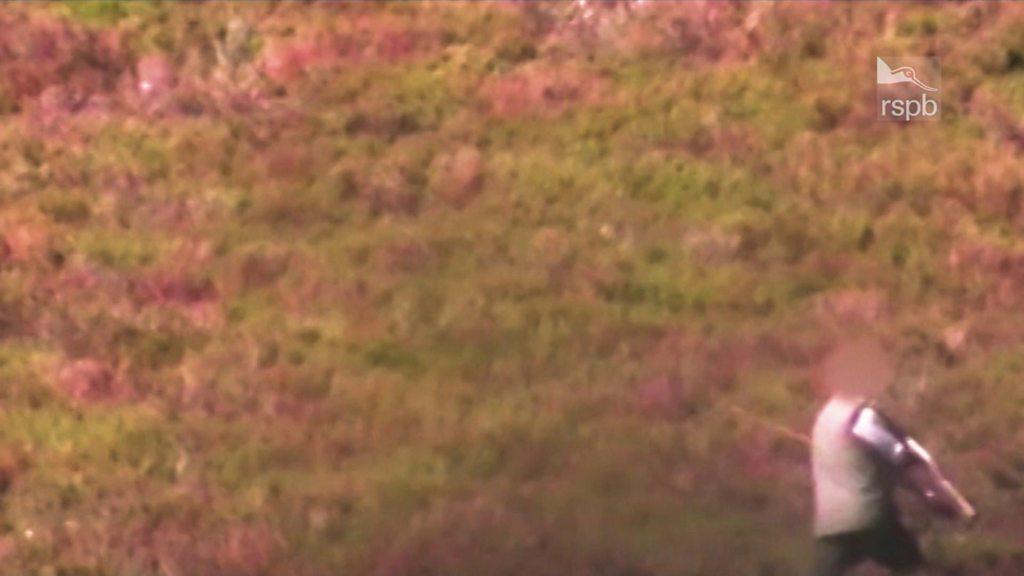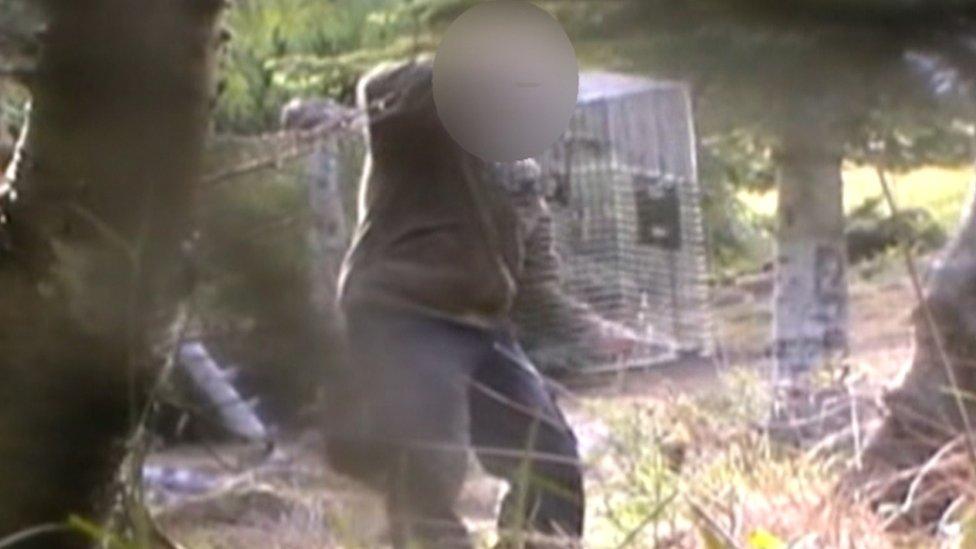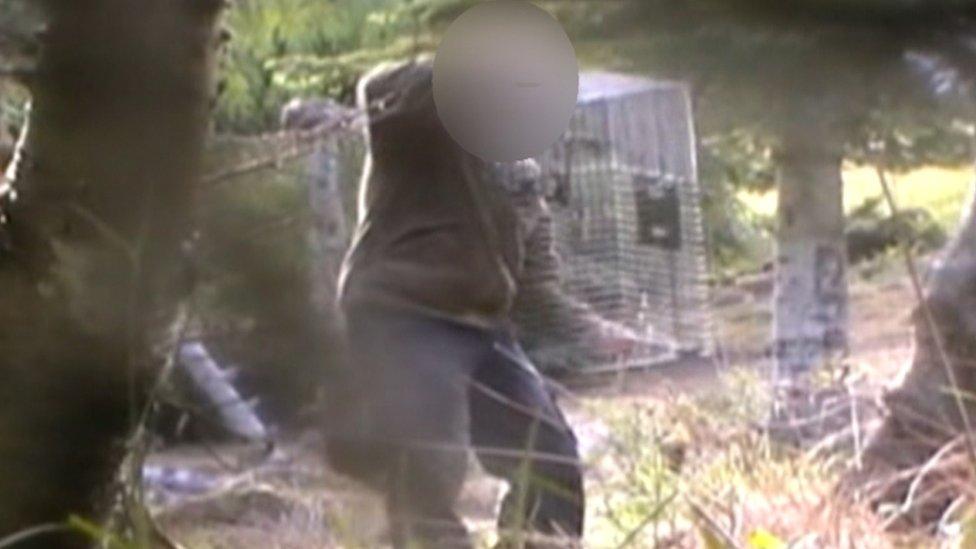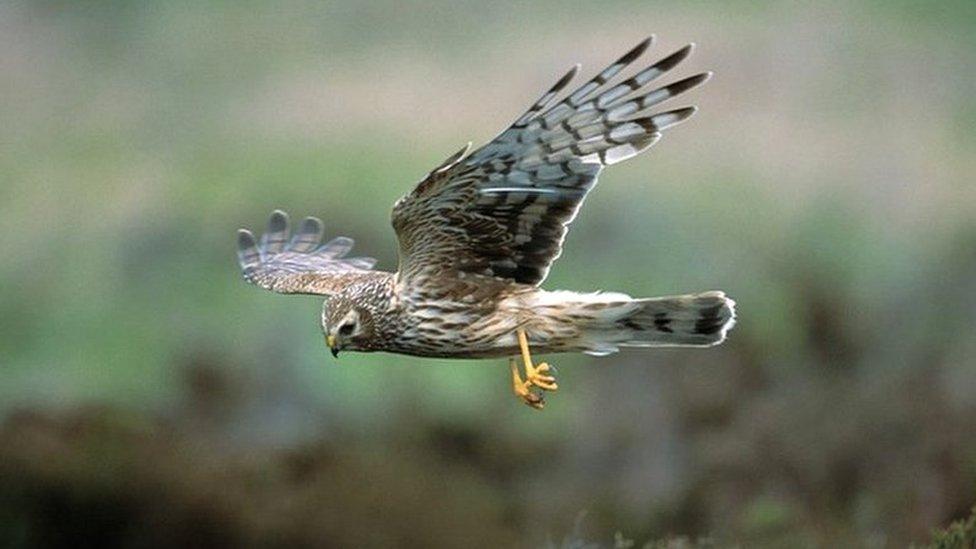Raptor killing video decisions queried
- Published

Prosecutors ruled out using video evidence in the case against a former gamekeeper
Holyrood's environment committee has intervened in the growing row over the use of video evidence in trials involving wildlife crime.
It comes after the Crown Office dropped two cases against gamekeepers, claiming the footage was inadmissible.
Environment Committee chairman, Graeme Dey MSP, has written to prosecutors asking to explain their decision.
Raptor persecution is a big problem and the task of catching those who kill the birds is even bigger.

Video evidence due to be used in a trial was ruled as inadmissible by the Crown Office
The difficulty is that the protected birds, such as eagles and hen harriers, tend to disappear in very remote parts of the country.
The chance of two witnesses catching the perpetrator in the act is small.
In the letter, Mr Dey said: "The committee has noted recent high profile instances where video evidence of alleged offences was available and not utilised, it has been suggested, on the grounds of admissibility.
"The committee is therefore seeking clarity about the admissibility of evidence of wildlife crime."
Guidance on admissibility
The letter asks which legislation and case law covers the admissibility of evidence and how prosecutors interpret that law to decide whether evidence is admissible.
It also asks whether there is guidance on admissibility and what any guidance covers.
The committee's chairman said: "These days, there's clearly an argument for the use of video, CCTV or even social media to be considered when a crime against any animal is alleged to have been committed.
"And, as it's often the case that poaching or killing of wildlife occurs in some of the most remote areas in Scotland, these crimes can sometimes go under the radar because there is no one around to act as a witness.
RSPB Scotland said it was disappointed that two recent cases had been dropped.
Ian Thomson, the charity's head of investigations, said: "We welcome the ECCLR committee's letter to the Crown Office, seeking clarification about the decision-making processes in recent wildlife crime cases.
"This clearly recognises the increasing and significant public concern that the courts did not have the opportunity to make their own judgement on the admissibility of the video evidence in these cases.
"We look forward to the response from the Crown Office with interest."
- Published12 May 2017

- Published5 May 2017
